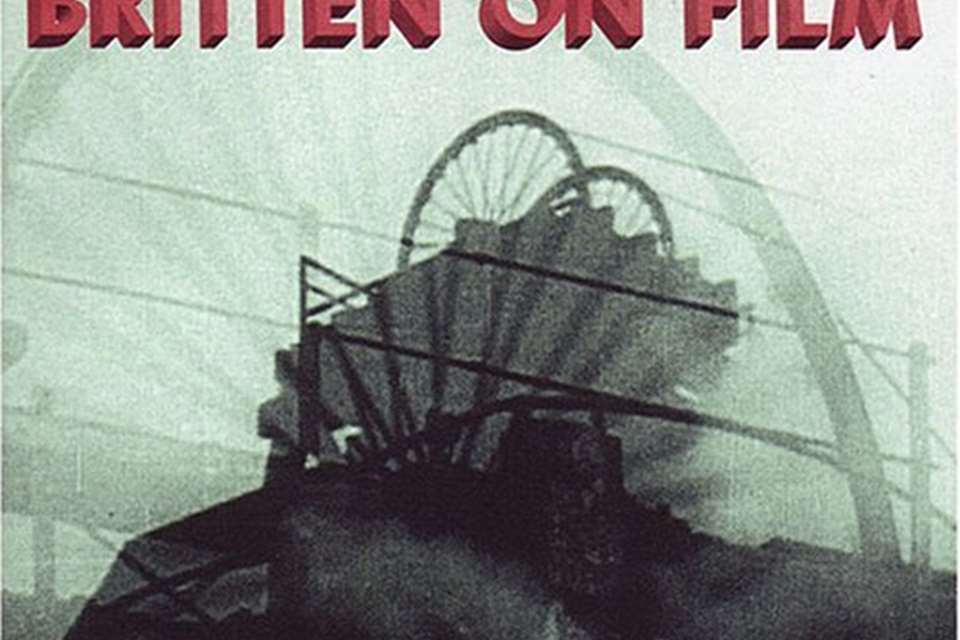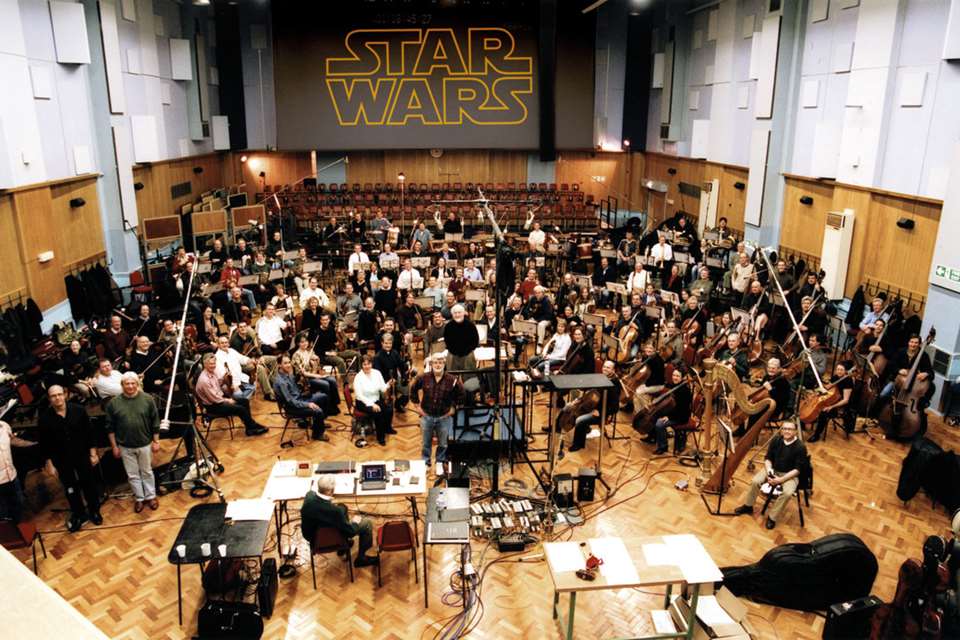Top 10 Classical Music Moments in Cinema
Charlotte Smith and James McCarthy
Tuesday, May 25, 2021
The greatest scene-stealing scores by Mozart, Wagner, Gershwin, Rachmaninov, Barber, Mahler, Strauss and Mascagni
1) Brief Encounter (1945, dir David Lean)
A film of simmering passions, suppressed by a pair of very British stiff upper lips. Rachmaninov’s Second Piano Concerto is a constant presence throughout the story, summing up perfectly a love affair that can never be realised. It’s one of the most romantic films ever made, teetering on the edge of melodrama, but always kept in check by the sincerity of Rachmaninov’s music.
2) Raging Bull (1980, dir Martin Scorsese)
The opening credits of Martin Scorsese’s Raging Bull are balletic, graceful and beautiful – as far as possible from what you might expect from a boxing movie. The choice of the Intermezzo from Mascagni’s opera Cavalleria Rusticana is inspired, and Robert De Niro strides around the ring like a caged tiger.
3) 2001: A Space Odyssey (1968, dir Stanley Kubrick)
Stanley Kubrick’s science fiction masterpiece showcases a number of classical works, including Johann Strauss II’s Blue Danube Waltz and Ligeti’s Requiem and Lux Aeterna, but it’s Richard Strauss’s Also Sprach Zarathustra (performed by the Vienna Philharmonic under Herbert von Karajan) that defines the film. Used at several points to illustrate mankind’s development, from ape to Star Child, the work appears for the first time in the opening credits, triumphantly announcing not only the Dawn of Man, but a new cinematic plateau.
Subscribing to Gramophone is easy, you can choose how you want to enjoy each new issue (our beautifully produced printed magazine or the digital edition, or both) and also whether you would like access to our complete digital archive (stretching back to our very first issue in April 1923) and unparalleled Reviews Database, covering 50,000 albums and written by leading experts in their field.
To find the perfect subscription for you, simply visit: gramophone.co.uk/subscribe
4) Manhattan (1979, dir Woody Allen)
The work-in-progress 'hymn to New York' narration that opens Woody Allen’s masterpiece, Manhattan, is accompanied by Gershwin’s Rhapsody in Blue, itself a hymn to American culture – and a perfect marriage between music and image is the result.
5) Platoon (1986, dir Oliver Stone)
Willem Dafoe’s Elias stretches his arms towards the sky as he falls in slow motion to the ground, shot down by Vietnamese forces and abandoned by his American platoon. All the while the mournful sound of Barber’s Adagio for Strings grows louder, cranking up the tragedy and wringing a tear or two from even the most cynical of hearts. The scene has produced any number of spoofs and copies, but you can’t beat Oliver Stone’s original Vietnam drama. [WARNING: VIOLENT CONTENT]
6) The Shawshank Redemption (1994, dir Frank Darabont)
In this scene from Frank Darabont’s The Shawshank Redemption, prison inmate Andy Dufresne (played by Tim Robbins) gains access to the prison warden’s office and his collection of LPs. As an act of rebellion he proceeds to broadcast the Letter Duet from Mozart’s The Marriage of Figaro to his fellow inmates over the prison's PA system. As fellow inmate, Red, says, 'For the briefest of moments every last man at Shawshank felt free.'
7) The Shining (1980, dir Stanley Kubrick)
Kubrick’s second entry in our list sets a new bar for horror, down in no small part to an eerie soundtrack, which again includes a composition by György Ligeti (Lontano). Bartók’s Music for Strings, Percussion and Celesta (performed by Karajan and the Berlin forces), provides the enduring soundtrack of the film, however, capturing perfectly the creeping menace of the haunted, isolated hotel, and one man’s descent into axe-wielding madness.
8) Apocalypse Now (1979, dir Francis Ford Coppola)
A massed helicopter assault on a Vietnamese village is played out to the musical backdrop of Wagner’s 'Ride of the Valkyries' from his opera Die Walküre in Francis Ford Coppola’s hellish vision of the Vietnam War: Apocalypse Now.
9) Amadeus (1984, dir Miloš Forman)
Of course a whole film dedicated to the – ever so slightly fictional – life of Wolfgang Amadeus Mozart would always be spoilt for choice when it came to choosing the soundtrack, but Miloš Forman manages, with the help of Sir Neville Marriner and the Academy of St Martin in the Fields, to match Peter Shaffer’s sensational script and pitch-perfect performances with a dazzling selection of Mozart’s works. Under the handy, though maniacal, guidance of Antonio Salieri, the viewer receives lessons in music appreciation too. Witness, Salieri’s first encounter with Mozart and his music – the Serenade for Winds, K361 – it’s a masterclass in understanding the compositions of a true genius.
10) Death in Venice (1971, dir Luchino Visconti)
Based on Thomas Mann’s novella of the same name, the film makes ample use of Mahler’s Adagietto from his Fifth Symphony, in addition to sections of the Third, to illustrate composer Gustav von Aschenbach’s gradual demise from a cholera epidemic, and his equally intense search for aesthetic beauty – found in the form of an adolescent Polish boy.
...and three more films that almost made it into the Top 10:
The King’s Speech (2010, dir Tom Hooper)
Colin Firth’s King George VI recites his first wartime radio broadcast, announcing Britain’s declaration of war on Germany in 1939, to the strains of the Second Movement of Beethoven’s Seventh Symphony.
Melancholia (2011, dir Lars von Trier)
Lars von Trier’s meditation on depression uses the prelude from Wagner’s Tristan und Isolde throughout, but as the film approaches its devastating and – literally – earth-shattering conclusion, the music builds to an ear-spitting volume.
Picnic at Hanging Rock (1975, dir Peter Weir)
This sinister story of the disappearance of a group of Australian school girls in 1900 contrasts the strangeness of the Australian landscape with the romantic strains of the Adagio un poco mosso Beethoven’s Emperor Concerto. This extended trailer includes not only the Emperor, but the film’s title music, derived from two traditional Romanian panpipe pieces and original music by composer Bruce Smeaton.
Thank you for visiting...
We have been writing about classical music for our dedicated and knowledgeable readers since 1923 and we would love you to join them.
To find the perfect subscription for you, simply visit: gramophone.co.uk/subscribe














